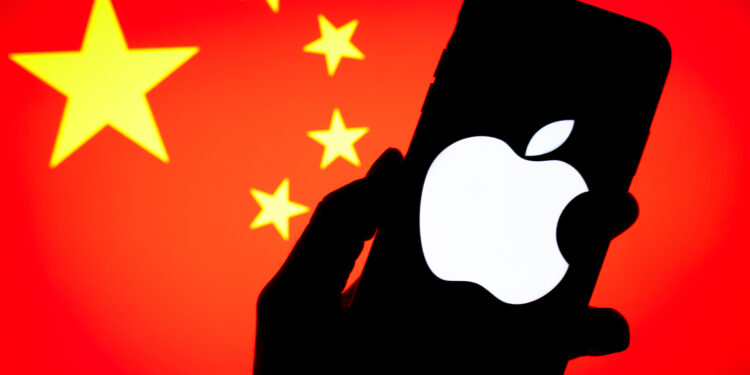Apple is facing a major challenge: introducing Apple Intelligence in China. While this technology is already being rolled out in the US and other regions, the Chinese market with its strict data protection and security requirements is proving to be a tough nut to crack.
Apple has built a global reputation for innovation and privacy, but those same principles are being put to the test in China. Incorporating Apple Intelligence could be critical to boosting iPhone sales in a market dominated by local competition. At the same time, Apple must perform a balancing act to stay true to its own privacy standards while still meeting regulatory requirements in China.
Why is China so complicated for Apple Intelligence?
China has some of the strictest regulations in the world, especially for technologies such as artificial intelligence (AI). Any AI system that is publicly available requires regulatory approval and must meet specific privacy and content requirements. This poses major challenges for companies like Apple:
- Regulatory requirements: AI technologies must pass safety guidelines and content reviews in China. Content that does not comply can lead to bans.
- Privacy issues: Apple, known for its strict privacy policies, is at odds with China's desire to store user data and use it for AI training purposes.
These factors make the introduction of Apple Intelligence in China particularly difficult.
The collaboration with Baidu
To accelerate the rollout, Apple has partnered with Baidu, China's leading technology company. Baidu owns one of China's most advanced large language models, Ernie 4.0. But this partnership is not without conflicts:
- Technical adjustment: Apple and Baidu are working on modifying Ernie 4.0 so that it works reliably both on devices and in the cloud for iPhone users. However, there have been difficulties so far because the model often does not respond precisely enough to requests.
- Different goals: While Baidu insists that the results of their AI are based on the trained data, Apple wants to offer more personalized answers based on users' iPhone usage.
These opposing approaches make cooperation considerably more difficult.
Data protection conflicts: Apple vs. Baidu
Another major point of contention is the use of user data, as The Information now reportedBaidu wants to store and analyze iPhone user data to improve the model's performance. Apple, on the other hand, remains true to its philosophy and does not allow personal data to be stored on external servers. This brings with it the following challenges:
- Use of iPhone data: Apple wants AI models to be trained directly on the device without transferring data to external servers.
- Chinese requirements: Baidu is obliged by China's data protection rules to store data and use it for optimization purposes.
This conflict is a central point in the negotiations between the two companies.
Strategic importance for Apple
China is one of Apple's most important markets, but iPhone sales have declined there over the past three years. Local brands like Huawei have put Apple under a lot of pressure with their AI features and aggressive marketing strategies. Apple sees Apple Intelligence as an opportunity to reverse these trends.
What happens next?
The introduction of Apple Intelligence in China is a lengthy process that will be marked by compromises. On the one hand, Apple must meet Chinese requirements, but on the other hand it must not abandon its core principles. The collaboration with Baidu is showing progress, but many questions remain unanswered.
Apple Intelligence in China: A Road Full of Challenges
For Apple, the launch of Apple Intelligence in China is a balancing act between innovation and adaptation to local conditions. The partnership with Baidu is an important step, but technical hurdles, data protection conflicts and regulatory requirements complicate the process. For Apple, this is not just about the success of Apple Intelligence but also about revitalizing its position in one of the world's most important markets. If Apple overcomes the challenges, this could be a decisive turning point for the brand - in China and beyond. (Photo by nikkimeel / Bigstockphoto)
- Apple Intelligence: A product of seven years of development
- Apple Intelligence: German language support from April 2025





